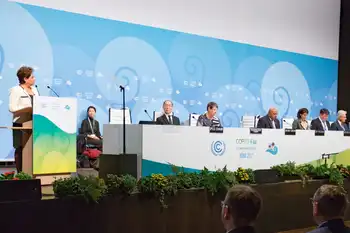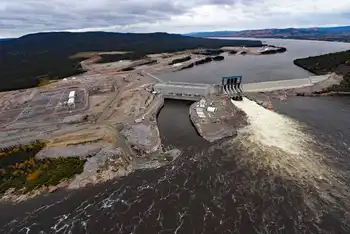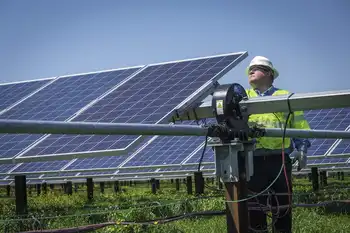Manitoba Power Line on Hold While Cancer Claim Investigated
Gateway To North America's Electrical Industry -
WINNIPEG, MB -- Plans to build a new power line in a Winnipeg-area community could be halted, at least temporarily, while the government investigates a report that shows incidents of cancer to be higher there.
A report by the Manitoba Centre for Health Policy and Evaluation earlier this month, shows the rate of cancer in East St. Paul in the mid-1990s to be 7.8 new cases each year for every 1,000 people. The Winnipeg average was 5.3 cases.
While the report did not draw any conclusions as to what would cause the higher cancer rate, the Tories seized on the numbers Wednesday to go after the NDP government.
Tory MLA Ron Schuler, who represents East St. Paul, says there is already a higher concentration of power lines in the community than anywhere else in North America.
Residents there have been fighting to stop the construction of a planned new tower.
Schuler and Liberal Leader Jon Gerrard joined forces in question period.
And while Gerrard, a former cancer research specialist, is skeptical of evidence connecting power lines with cancer clusters, he and Schuler want the situation investigated before any construction of new power lines goes forward.
"I think that it's highly likely the cancer rate is due to something else than power lines," Gerrard said. "But you have this heightened public concern and it needs to be investigated."
Greg Selinger, minister responsible for Manitoba Hydro, was startled by the report and said he would launch an investigation before construction moves forward.
"Hydro will not be installing any hydro lines until all the information on people's health has been properly examined and considered," he said.
Previously, the Clean Environment Commission has said there is no evidence to believe adding a power line to East St. Paul would adversely affect the health of residents.
Schuler said the government should offer the residents of East St. Paul funding to bring in their own experts to study the issue.
Related News

Net-Zero Emissions Might Not Be Possible Without Nuclear Power
LONDON - Declining solar, wind, and battery technology costs are helping to grow the share of renewables in the world’s power mix to the point that governments are pledging net-zero emission electricity generation in two to three decades to fight global warming.
Yet, electricity grids will continue to require stable baseload to incorporate growing shares of renewable energy sources and ensure lights are on even when the sun doesn’t shine, or the wind doesn’t blow. Until battery technology evolves enough—and costs fall far enough—to allow massive storage and deployment of net-zero electricity to the grid, the systems will continue to need…




